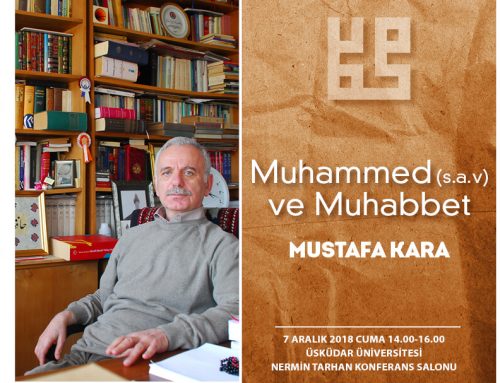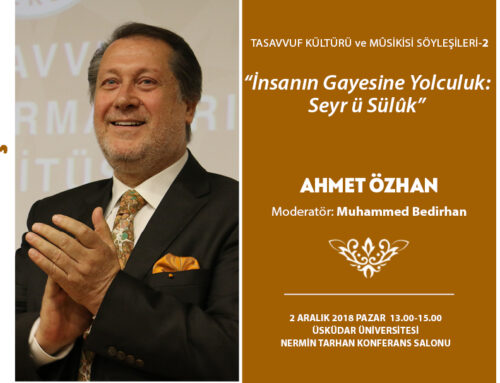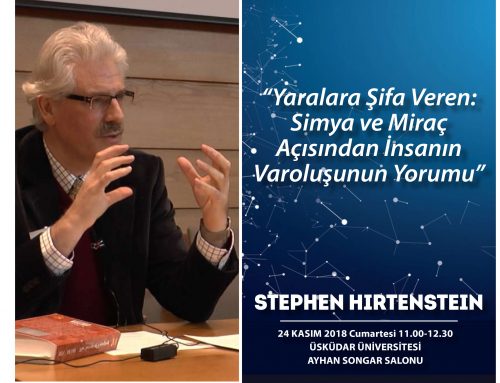FOR FINAL REGISTRATION ANNOUNCEMENT PLEASE
CLICK HERE
SCOPE
The religion of Islam should be expressed only by the word Islam without any other qualification. However, people’s perception of religion has always been in accordance with their own level, including the period of the Messenger of Allah (saw). There is a difference in style, temperament and depth of belief among the Sahaba.
Each of the religious sciences has interpreted Islam and its two main sources from its own perspective. The words analyzed appear to be the same, but the interpretation and meaning differ according to each discipline’s own methodology. The perception of religion as understood and explained by a theologian, a philosopher, a commentator, a jurist or a wali is a form of interpretation of religion. Although they may be considered the same, they are of different nature. This difference is in accordance with human nature, which exists with its different characteristics, or in religious terminology, in accordance with the divine will.
Islamic Sufism is fundamentally based on the Messenger of Allah (saw). But because of its emphasis on the common human experience, it seeks to understand it through the eternal wisdom tradition of saints, mystics and sages from many racially and linguistically diverse societies. This understanding is related to other religious sciences. However, it has a sui generis cognition. The Sufi tradition of wisdom has an enormous cultural heritage based on the Qur’an and Sunnah and interpreting their data in the light of deep experience. This course examines the methods and principles of Sufi thinkers’ perception of revelation and Rasulullah with the help of sources on this subject.
This program is organized in successive courses. Two classical works will be followed by the participants who have received information on the general context and doctrinal aspects of the subject in the first course, and the theoretical knowledge they received in the second and third courses will be applied and studied.
FIRST BOARD
6 weeks, 12 hours, every Saturday between 11.00 – 13.00, September 24 – November 5, 2016. The program fee is 400 TL. (including VAT)
- Sufi thinkers’ approaches to the nature of revelation, the Qur’an and the Mushaf
- What is a verse?
- Methods and principles of interpreting the Qur’an
- The main concepts of the Qur’an and exemplary verse interpretations of these concepts from the works of Sufi commentators
- The method Sufis followed in understanding the Prophet and the Sunnah.
- The relationship between Guardianship and Prophethood.
- The historical and universal aspect of the Messenger of Allah: The Understanding of Human Kamil
- The multi-layeredness of the words and practices of the Messenger of Allah
- Sufis’ methods of understanding hadiths
- Sample hadith readings from Bukhari and Muslim and Sufi explanations
- Ibn al-Arabi and Mawlana’s interpretations of some hadiths
- Selected hadiths from Konevî’s commentary on forty hadiths and Sufi commentaries
SECOND KUR:
9 weeks, 18 hours, every Saturday from 11.00 – 13.00, between November 12, 2016 – January 14, 2017. The program fee is 600 TL (including VAT)
The first hour every week, the work of Sahl Tusterî, which is considered the first Sufi tafsir
Sahl b. Sahl, one of the masters of Khorasan. ‘Abdullah al-Tustari (v. 283/896) is one of the Sufi greats who is considered to be the first Sufi exegete and to whom a Sufi sect called Sahliyya was attributed in the first period. He is also known as the sheikh of Hallac-i Mansur. Until that time, there were various commentaries on the linguistic features of the Qur’an. The originality of this work is in the following aspect. The later Sufi/ishari tafsirs are compilations of various Sufis. This means collecting the views of Sufis with different states, stations and contexts. It is extremely difficult for the layman to make the connection between views whose contexts are different. It can be said that this disorganization of context is the main reason why the subject of Sufi exegesis has not received the attention it deserves. In this respect, the work, which consists entirely of Sahl’s views, has integrity and depth regarding the Sufi truths of the verses. The work will provide participants with a perspective on the world of meaning of Qur’anic verses that extends beyond grammar. This perspective will give us the opportunity to follow the universal message of the Qur’an, the clues of the relationship between man-universe-God, and the main themes of the Qur’an through the meanings born in the heart of a Sufi elder.
The second hour every week, Imam Bukhari’s hadith book Sahih al-Bukhari
The beloved Prophet Hz. The Sahih al-Bukhari, which contains the hadiths of Prophet Muhammad (peace be upon him), is the second most authentic work in the religious tradition after the Qur’an. It was the first hadith book to be collected.
Beyond the classical linguistic and superficial readings of hadiths, the hadiths to be discussed in the course will be analyzed through the understanding of Rasulullah (pbuh) understood through the Sufi tradition shaped by the Ahlullah, who constitute the deep and benevolent aspect of Islam. The method and depth of understanding hadiths will be emphasized.
Hz. It is aimed to benefit from Muhammad’s guidance and universal messages on the subjects of God – human – life and metaphysics, as he was the messenger of God.
THIRD KUR:
12 weeks, 24 hours, every Thursday from 12.00 – 14.00, October 20, 2016 – January 12, 2017. The program fee is 800 TL. (including VAT)
It is a continuation of the content of the second course. The same works will continue to be read.
http://tasavvuf.uskudar.edu.tr/tr/sayfa/63/tasavvuf-irfn-isiginda-kurn-ve-reslullah





